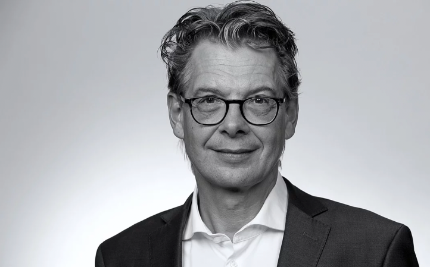
Georg Krücken contributed pioneering research in higher education, science studies, and organizational theory, shaping the academic understanding of university and science systems worldwide. He and his team at INCHER-Kassel hosted the 2019 conference of the Consortium of Higher Education Researchers (CHER), of which he was a member of the Board of Governors, generously providing advice and guidance to later convenors, even as he fell ill. Born on 21 September 1962, in Bad Honnef, Germany, he died of cancer on 7 October 2024, in Hanover, Germany, leaving an enduring legacy of scholarly excellence.
Georg’s academic journey began at Bielefeld University, where he completed his Diplom in sociology in 1989, based on studies in philosophy, political science, and sociology at Bielefeld and Bologna. He went on to earn his Dr. rer. soc. from Bielefeld in 1996 and in 2004 completed his Habilitation in sociology there. After various roles in Bielefeld, he was Professor at the German University of Administrative Sciences Speyer (Deutsche Universität für Verwaltungswissenschaften), Germany (2006—2011). In 2011, Georg was called to Kassel University, Germany, to the Chair in Higher Education Research—and to be Managing Director of the International Centre for Higher Education Research (INCHER-Kassel), a key university-based center higher education research in Europe (and the birthplace of CHER). In his leadership of INCHER-Kassel, Georg sustained this international center as a hub for innovative research, emphasizing interdisciplinary collaboration, and bringing together scholars from around the world to examine crucial issues in higher education, including governance, internationalization, and organizational transformation.
Georg’s research spanned a diverse array of topics within the discipline of sociology and the multidisciplinary field of higher education. In particular, his intellectual pursuits were rooted in the exploration and expansion of neo-institutionalism, particularly how universities and other organizations adopt global models while and economic rationality, as well as the challenges and opportunities presented by new public management reforms. His work also addresses the complexities of quality assurance and accreditation in higher education, the diffusion of scientific knowledge, and the societal implications of technological and ecological risks. These insights have significantly enhanced the understanding of how higher education institutions and organizations evolve in the face of global forces, shaping both theoretical and empirical research on the subject.
His scholarly work and influence extended globally, earning him recognition as a thought leader in both European and international academic circles. His impact extended through diverse international engagements and deep personal connections with many leading scholars of multiple generations. Research and teaching stays at Stanford University (1999-2001, 2011, 2023–24) and Sciences Po Paris (2005, 2016), countless international research collaborations, numerous memberships on editorial and other boards, in academies, and as the founder of research networks are testament to his organizational abilities and personal generosity. For decades, he was Spokersperson of the key research network on Neo-Institutionalism in the German-speaking world that he co-founded. Georg also played a significant role in institutionalizing higher education research in Germany as Chair of the Gesellschaft für Hochschulforschung (GfHf) (Society for Higher Education Research). All these roles underscore his steadfast commitment to advancing the field’s institutionalization. From 2021 to 2024, he was the Spokesperson of the DFG Research Group on “Multiple Competition in Higher Education”. Through his leadership, Krücken championed the importance of higher education research as a vital multidisciplinary field, creating lasting frameworks for future scholarship in the area. His highly-cited work provides important insights into how universities and other organizations adapt to global pressures, maintaining their distinctiveness while adopting shared models of operation.
Georg Krücken’s passing is a profound loss to all who new him, to the academic community and in particular to INCHER-Kassel and the networks he coordinated, including CHER. Yet his legacy will endure through the research he conducted and inspired, through the scholars he mentored, and the academic organizations he shaped. His work resonates, offering valuable insights into the evolving dynamics of higher education in a globalized world. His dedication and his research agenda-setting has left a lasting imprint on the field and on so many of us who counted him as colleague and friend.
